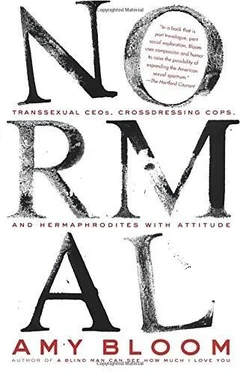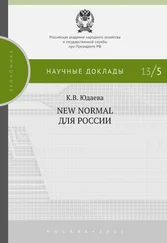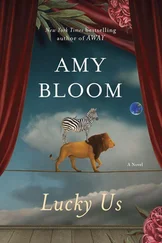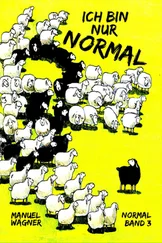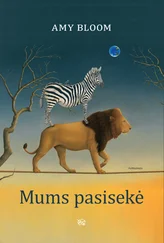IN MEMORIAM
MALCOLM KEITH, MY TEACHER
1923–2001
I have been thinking and talking about gender, sex, sexuality, culture, health, and illness for the last eight years, and I could not have completed this book without the advice, insights, and writings of the following people, whose help was even greater than I have indicated in these pages: Mariette Pathy Allen, Kay Ariel, Ray Blanchard, Cheryl Chase, Ken Corbett, Dallas Denny, Holly Devor, Mickey Diamond, Mark Doty, Alice Domurat Dreger, Peter Edidin, the Fairfaxes, Lori Fox, James Green, Philip Gruppuso, Judith Halberstam, Suzanne Kessler, Don Laub, Arthur Lavin, Gail Lebovic, Steve Levine, Merissa Sherrill Lynn, Donald Moon, Angela Moreno, Esther Newton, Rachel Pollack, Marc Rubinstein, the Rudds, Leah Schaefer, SPICE, and Sydney Spiesel.
A number of people preferred not to be identified; to all of you who helped me gather information, clarify my thoughts, and better understand things that are not so easy to understand, thank you.
To my agent, Phyllis Wender, extraordinary mix of dear friend, fearless watchdog, and Natty Bumppo, and to my editor, Kate Medina, who believed in this project from its inception and guided me through it with her usual rare deft grace and high standards, I am able to convey only a fraction of my appreciation.
I was also helped by the intelligent conversation, suggestions, and observations of my three dearest critics, Alex, Caitlin, and Sarah, and by the unending encouragement and support of my best reader, editor, and beloved, Joy Johannessen.
A great multitude of people are continually talking of the Law of Nature; and then they go on giving you their sentiments about what is right and what is wrong: and these sentiments, you are to understand, are so many chapters and sections of the Law of Nature.… [Such and such an act, they say,] is unnatural, that is, repugnant to nature: for I do not like to practise it: and, consequently, do not practise it. It is therefore repugnant to what ought to be the nature of everybody else.
JEREMY BENTHAM
,
Introduction to the Principles of Morals and Legislation
(1789)
Why is it so hard for us to face that our truths are often fantasies? How can Jeremy Bentham, hardly a guy to be riding in the float at the head of the flamboyant, the shocking, and the spit-in-your-eye crowd, still be telling us from the eighteenth century what we don’t yet know in the twenty-first?
Normal is about people widely considered not normal: female-to-male transsexuals, heterosexual crossdressers, and the intersexed, sometimes known as hermaphrodites. I originally wrote the first essay, “The Body Lies,” for The New Yorker. “Isn’t there anything you’ve wondered about and never understood?” Tina Brown, then the editor, asked me. “Whatever it is, write about that.” There was, and is, a long list of such things, but people who had chosen to have traumatizing surgeries to change their gender permanently, and men adamant about desiring both women and their clothes, were at the top of it, since in both cases I could not imagine what kind of people these would be. I didn’t know enough about the intersexed even to wonder.
My ignorance was outstripped by my presumptions and assumptions. Surely, transsexuals were either severely delusional and easy prey for unscrupulous doctors, or else they were just victims of our nutty, gender-obsessed society. No, as it turns out. Surely, heterosexual crossdressers were closeted gay men whose innate femininity was expressed through the wearing of women’s clothes. No, as it turns out. Surely, those unhappy intersexed people were crazy, even self-destructive, to suggest that intersexed babies were not served by early surgery. No, as it turns out.
It is true, as physicians and scientists and novelists know, that pathology teaches us something about health, as unhappiness teaches us something about happiness and loss teaches us something about what we have. It’s also true that there is, in all of these dichotomies, more of a continuum and a mix than we sometimes think.
In spending time with people whose circumstances have forced them to think hard about issues of identity and gender, of the public and the private, in ways that most of us can shrug off if we wish to, I learned as much about our culture’s blind spots as about their habits, and as much about the commonality of human needs, no matter how uncommon the costume or the physical package. The female-to-male transsexuals pushed me to think, as I had not, much, about what makes a man, and why, and why we care; the crossdressers, about the nature of marriage and marital happiness and the ties and binds of femininity; the intersexed, about medical practice and its great advances, and great failures, and about the real damage of shame and silence and the process and costs of change.
And all these people became, not the transsexuals, the crossdressers, the intersexed, but Michael and Luis, Dixie and Rebecca, Cheryl and Hale. People. People with stories and wishes and good luck and bad, and as much as their stories are filled with intriguing details and terrible ones, with really funny, and really awful, encounters with the world, they are the stories of people whose hopes and needs, however foreign or familiar, teach us about ourselves as well as about them, and whose difference calls upon the rest of us to examine where the real differences lie.
There are shelves and shelves of academic, clinical, ideological, and autobiographical books on one or more of the subjects I address here. I didn’t want to add to them; I wanted to tell the stories of the people I met and how it was to be with them, to offer readers a chance to see what I saw, perhaps to see further and better, and to see into these particular worlds and back out to the larger one we all share.
The names of many of the people in this book, and some identifying details about them, have been altered at their request.
THE BODY LIES:FEMALE-TO-MALE TRANSSEXUALS



What would you go through not to have to live the life of Kafka’s Gregor Samsa? Not to realize, early in childhood, that other people perceive a slight, unmistakable bugginess about you, which you find horrifying but they claim to find unremarkable? That glimpses of yourself in the mirror are upsetting and puzzling and to be avoided, since they show a self that is not you? That although you can ignore your shell much of the time and your playmates often seem to see you and not your cockroach exterior, teachers and relatives pluck playfully at your antennae with increasing frequency and suggest, not unkindly, that you might be more comfortable with the other insects? And when you say, or cry, that you are not a cockroach, your parents are sad, or concerned, or annoyed, but unwavering in their conviction — how could it be otherwise? — that you are a cockroach, and are becoming more cockroachlike every day. Would you hesitate to pay thirty thousand dollars and experience some sharp but passing physical misery in order to be returned to your own dear, soft, skin-covered self?
Читать дальше
